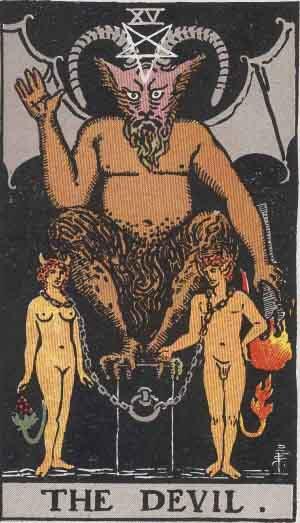Tarot cards have existed for centuries, their origins shrouded in the mists of time. While they were initially created as playing cards in the 15th century in Italy, they underwent a metamorphosis, evolving into instruments of divination and insight. This transformation ignited debates about their true nature, with opinions split between those who view them as divine tools for spiritual guidance and those who perceive them as products of darker spiritual realms. This article seeks to unravel the complexity behind tarot cards, exploring their historical roots, symbolism, interpretations, and the diverse perspectives that shape their significance.

Historical Roots and Evolution
The origins of tarot cards lie in the Italian courts of the Renaissance. Initially used for games, these decks comprised the Major and Minor Arcana, each card adorned with intricate illustrations reflecting life’s myriad facets. Over time, individuals began employing these decks for divination and spiritual contemplation, attributing deeper meanings to the symbols depicted on the cards. However, their transition from playing cards to tools for spiritual insight remains a point of contention among historians and enthusiasts alike.
Interpretations and Symbolism
Central to the allure of tarot cards is their rich symbolism and the interpretative freedom they offer. The cards’ imagery contains layers of meaning, with each reader bringing their unique perspective and intuition to the table. For instance, the High Priestess card might signify intuition and inner wisdom for one reader, while for another, it could represent hidden knowledge or secrets. This inherent ambiguity allows for diverse interpretations, sparking debates about whether the messages derived from the cards originate from divine sources or the human psyche’s depths.
Divination or Psychological Tool?
The crux of the debate lies in the purpose of tarot readings. Advocates of tarot as a divination tool assert that the cards serve as conduits for tapping into higher consciousness, providing guidance and clarity in navigating life’s complexities. On the other hand, skeptics often attribute the accuracy of readings to chance, cold reading techniques, or the psychological phenomenon of confirmation bias, where individuals interpret information to confirm preexisting beliefs. This divergence in viewpoints highlights the clash between spirituality and rationality in assessing the true essence of tarot.
Religious and Cultural Perspectives
Tarot cards exist within a tapestry of diverse religious and cultural beliefs. In some spiritual practices, they are revered as sacred tools for spiritual growth, alignment, and accessing divine wisdom. However, in certain religious contexts, particularly those that label certain practices as occult or against religious doctrine, tarot cards are stigmatized and deemed as tools associated with the devil or forbidden realms. This dichotomy in perspectives underscores the varying degrees of acceptance and rejection of tarot across different cultural landscapes.
Personal Experience and Ethical Practices
Personal experiences with tarot cards span a wide spectrum. For some, tarot readings have acted as catalysts for profound personal insights, aiding in decision-making, self-reflection, and emotional healing. Yet, ethical considerations remain paramount within the tarot community. Responsible practitioners prioritize ethical conduct, emphasizing informed consent, confidentiality, and empowerment during readings. They strive to avoid instilling fear or dependency, focusing instead on fostering the client’s autonomy and well-being.
Conclusion
The enigmatic allure of tarot cards persists, entrenched in centuries of history and mythology. Whether viewed as divine tools or psychological constructs, tarot cards continue to captivate and provoke contemplation. The debate surrounding their nature reflects the complex interplay between spirituality, psychology, and individual beliefs. Ultimately, the significance attributed to tarot cards remains a deeply personal and subjective experience, shaped by cultural, religious, and individual perspectives. As the tarot continues to enthrall and mystify, it beckons curious minds to unravel its mysteries and explore the depths of the human experience it mirrors.